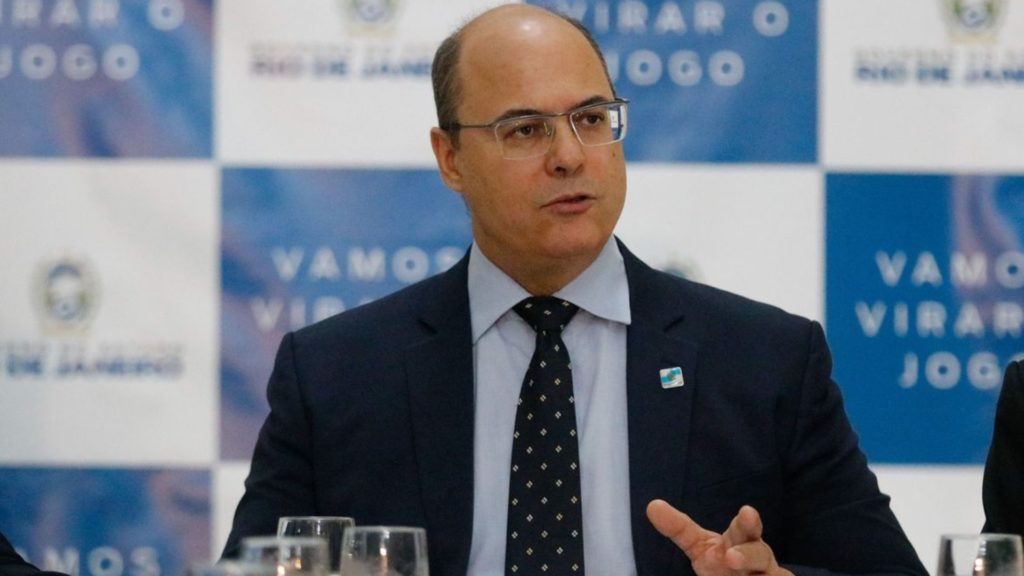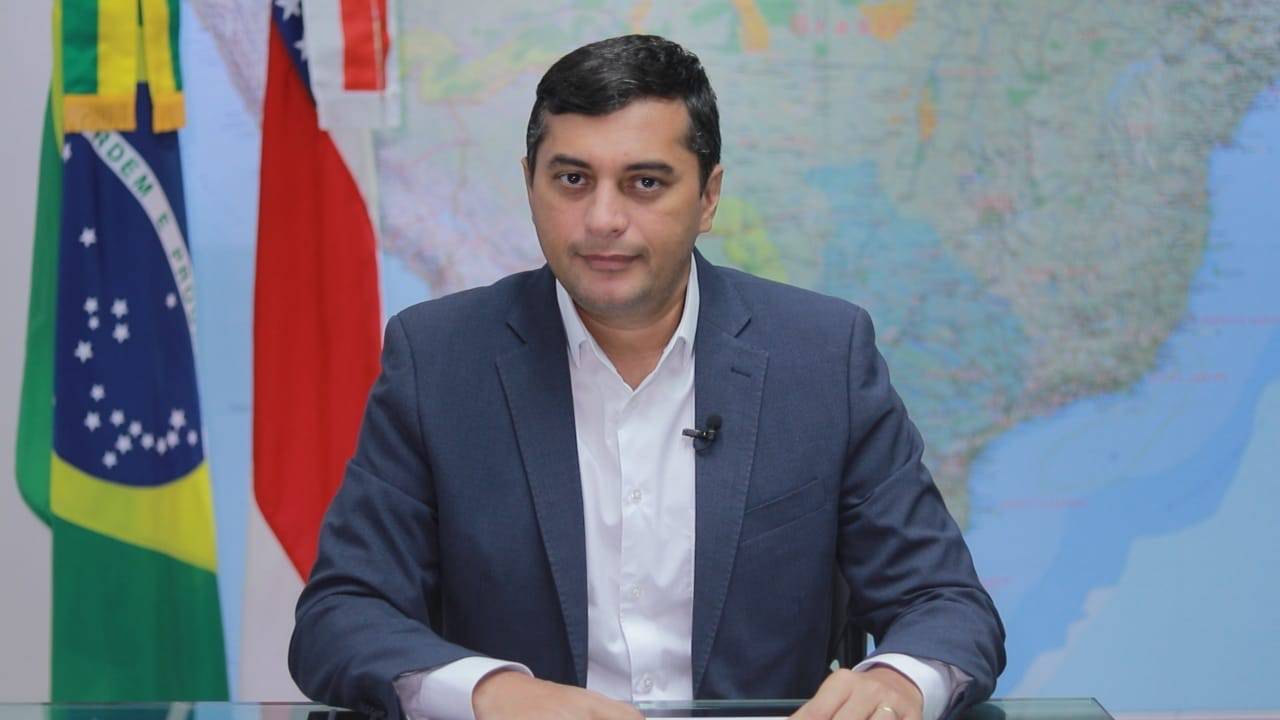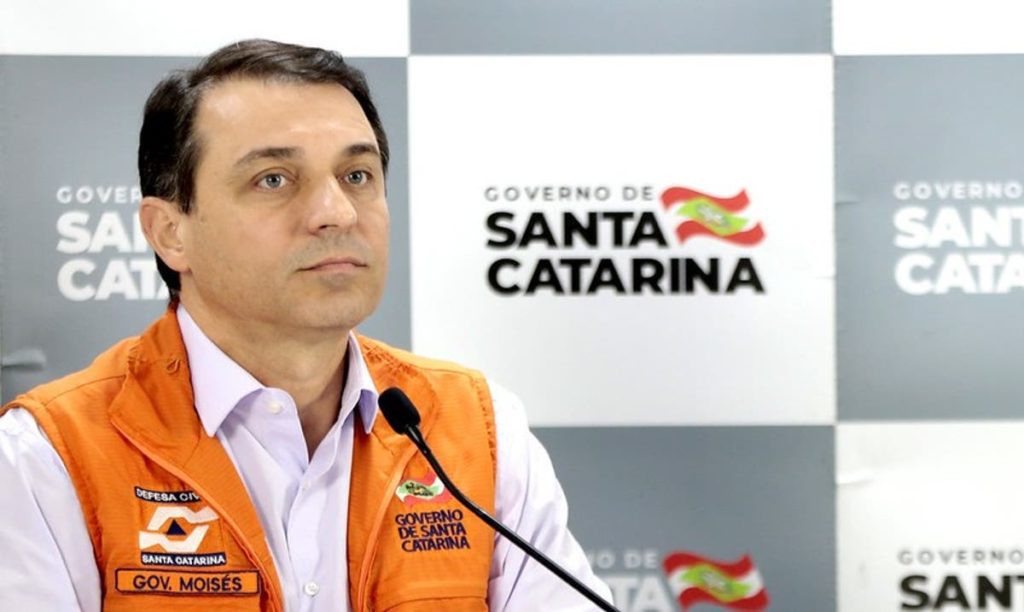RIO DE JANEIRO, BRAZIL – Elected in the 2018 elections and with a discourse contrary to traditional politics, the governors of Santa Catarina, Amazonas, and Rio de Janeiro became the target of impeachment petitions for suspected irregularities in their administration during the novel coronavirus crisis and for complaints of a lack of dialogue with the state legislature. If state deputies pursue the cases, Brazil may have its first case of impeachment of a governor since 1957.

That year, the Legislative Assembly of Alagoas removed Muniz Falcão, to this day the only head state executive who was prevented from remaining in office by a resolution of legislators.
To avoid the same fate as Falcão, Rio’s Wilson Witzel and Santa Catarina’s Carlos Moisés are trying to change their relationship with state legislators, either by appointing names that please the legislature to handle political coordination, or by paying budget riders earmarked for legislators. State legislators are still not sure if this will be enough.
“Our system of power separation requires an ongoing dialogue between the executive and the legislature,” said political scientist Luis Felipe G. da Graça of the Federal University of Santa Catarina (UFSC). According to him, governors who campaigned as the “new politics” underestimated the need to build a support base in the legislature. “With the coronavirus crisis and the corruption charges that have emerged, this lack of a support base has become dangerous for governors.”
In Amazonas, Wilson Lima’s situation seems more reassuring, since not even the opposition believes he will be removed from office. Despite having been the target of a Federal Police operation, the governor is growing a sufficient base in Congress to prevent the proceeding.
For attorney Silvio Salata, an expert in electoral law, although impeachment follows a legal rule, its judgment is political. Hence the need for coordination. “The politicians’ lack of experience in exercising their mandate often leads them to adopt certain positions that may compromise their performance,” he said.
In the assessment of Arthur Rollo, an attorney specialized in Public and Electoral Law, the most significant aspect of the impeachment process is the political climate, such as street demonstrations, and the pressure on assembly members. “This is a political process. What matters is having a majority or not. (President Jair) Bolsonaro, for instance, approached the Centão to secure a majority in Congress and prevent [impeachment] petitions from thriving.”
Pandemic
Witzel’s impeachment petition mentions suspected embezzlement in health, which has already led a former secretary, two former undersecretaries, and others involved to jail. The claim against Lima alleges fraud in the purchase of ventilators.
However, Carlos Moisés’ case has no connection with the pandemic. Signed by a public defender, the document focuses on the allegedly undue wage raise granted to state prosecutors in the absence of a bill passed by the Legislative Assembly.

Witzel to present defense
Of the group of governors who surprised by winning at the 2018 polls, Wilson Witzel was the first to see an impeachment process open, on June 10th. Suspected of involvement in embezzlement in health, the Rio de Janeiro governor is facing a political crisis, in addition to legal scandals.
His relationship with the Rio state assembly (ALERJ), which has never been the best, turned into pure estrangement after the outbreak of Operation Placebo in May. Currently, there is no deputy acting as government leader in the Assembly since Márcio Pacheco handed over the post in May. Even his ally Bruno Dauaire, who temporarily took over the position of government leader in the House earlier this month, quit two days later.
One of the reasons for Pacheco’s withdrawal was the exoneration of André Moura as the Governor’s Chief of Staff – who returned to his post last week in an attempt by the governor to move closer to the deputies. Once a federal deputy, Moura was the leader of Michel Temer’s government in the Chamber of Deputies and Eduardo Cunha’s right-hand man. In other words, it will be up to an exponent of “old politics” to try to reverse the unfavorable picture that Witzel is facing in ALERJ.
Deputies have said that, although Moura’s return is welcome because of his political experience, nothing changes for the time being in the impeachment process. The assessment is that the majority of the Special Committee examining the case will vote for the governor’s removal. Half of the committee consists of opponents. The remainder are deputies who must vote under the guidance of the House president, André Ceciliano – who is currently in favor.
Witzel has until the end of this week to present his defense to the committee. Then, the opinion produced there will be forwarded to the ALERJ plenary, where it is estimated that the governor’s supporters are no more than ten. Only 36 out of 70 votes are required for his removal. A mixed court will then be convened with legislators and judges to examine the impeachment.
Accusations of corruption involving contracts to fight the coronavirus are complicating the situation. Witzel is suspected of being involved in the embezzlement – which has already taken former Health Secretary Edmar Santos and second-ranking members to jail – and has even been the subject of a search and seizure warrant. The investigation is ongoing, yet he denies any irregularities.
In Amazonas, a trend toward shelving
Not even the opposition believes in the survival of the current impeachment process for the governor of Amazonas, Wilson Lima. Under investigation for alleged fraud in the purchase of ventilators during the pandemic, Lima has already been the subject of a search and seizure warrant and has had his arrest requested by the Federal Police. The request was not upheld by the Office of the Prosecutor General and was rejected by the Superior Court of Justice (STJ).
“We are heading toward closing the case,” said state deputy Wilker Barreto, who opposes Lima in the House. “We have legal elements. The problem is that the deputies are linked to the government structure. Non-termination is now their survival.”
Authors of the impeachment petition, the president of the Amazonas Doctors Union, Mario Vianna, and doctor Patrícia Sicchar mention the ruin of the state hospital network, the lack of equipment, and medication, as well as evidence of corruption. According to the investigation on the purchase of ventilators, Lima would have had the final word on contracts.
The governor is also under pressure due to the situation caused by the coronavirus in the state. According to the government, there were 3,199 deaths and 94,424 infections until the day before yesterday.
On the other hand, Lima has built a base in the Legislative Assembly – part of it is in the committee analyzing impeachment. In the opposition, Josué Neto, the president of the Legislative Assembly, is yet another who does not believe in the impeachment. According to him, ten of the 17 members of the special impeachment committee will vote with the government.
The president of the committee and Lima’s ally, deputy Alessandra Campêlo, said she will make a technical, legal, and impartial examination of the process. For now, she said she found part of the charges generic. “A generic accusation can’t convict a governor. Part of the denunciations is too political. Other parts have more legal technique, and in those, I’ll delve deeper.”
The governor’s defense states that there is minimal proof of authorship and materiality. “The reports do not serve as a proper legal basis for impeachment proceedings,” the attorneys say. In order to start the process, it would be necessary to “report a crime of accountability”, which did not occur, according to the defense. There are seven other impeachment petitions for Lima awaiting consideration by the House, according to Neto.

Lack of dialogue in Santa Catarina
The lack of dialogue with legislators and inexperience in executive positions are reasons pointed out by deputies from Santa Catarina to follow up on Governor Carlos Moisés’ impeachment petition. Even the former leader of the government in the House, Mauricio Eskudlark, advocated the governor’s removal.
Authorized last week, the impeachment process accuses Moisés of being liable for having raised the wages of state prosecutors without consulting deputies. According to Eskudlark, the charge is serious enough to justify his removal. “It is a proven fact with a legal ground and has everything to stand up.” Eskudlark is the author of another impeachment petition that concerns the purchase of overpriced ventilators, which have not been delivered to the state.
The fact led to the opening of a CPI (Parliamentary Committee of Inquiry), reported by Ivan Naatz for whom there are now sufficient votes to remove the governor. “Payments lacking Legislative authorization, with losses already confirmed, along with isolation (of the government) created the ideal recipe for a removal,” he said.
For the process to progress, 27 of the 40 state legislators (the equivalent of 2/3) must agree with the special impeachment committee’s report.
The current government leader, State Deputy Paulinha, acknowledged that the Executive has shortcomings and is the target of complaints for lack of dialogue. Although she does not know how many deputies openly vote with the government, she believes that the number is sufficient to bar the process. “It takes 14 deputies (to block the impeachment). The governor doesn’t need much. Many empathize with him.”
The relationship with the House can still be corrected, according to the deputy. In an attempt to improve the relationship with the legislature, the government authorized the transfer of over R$491 million in congressional budget riders, including amounts that had not been paid in 2019. “This is a very expressive sign from the government. It’s a way to show respect to deputies,” Paulinha said. Naatz disagreed: “There is no relationship with the House. The government does not have a leader in the Chief of Staff, it has not sent a single bill of impact.”
Moisés’ press office said the day before yesterday that it would not comment because it had not been officially notified about the process. Regarding the vacant position of Chief of Staff, he said the portfolio’s deputy accumulates the job, and the position has never been vacant.
Source: O Estado de S. Paulo

